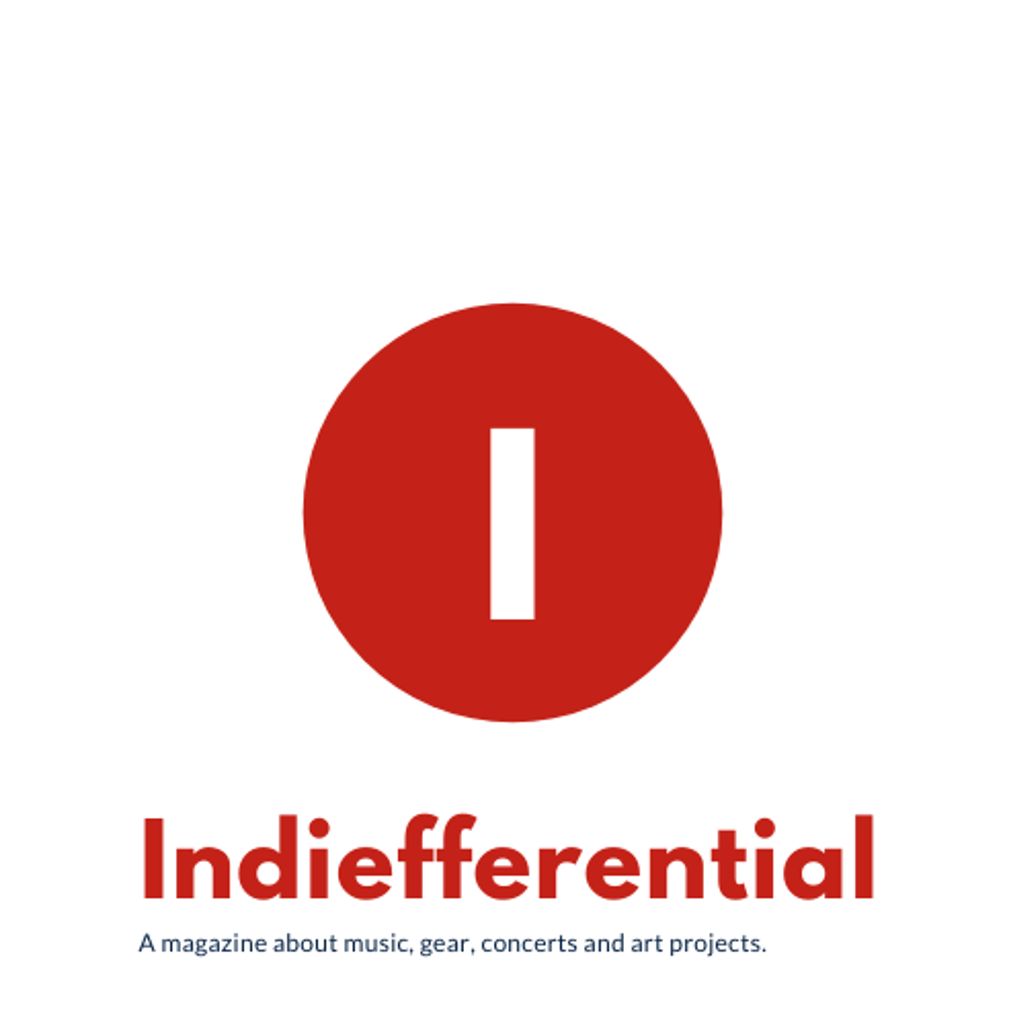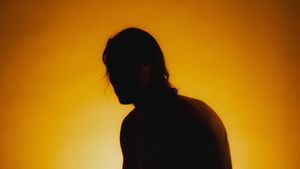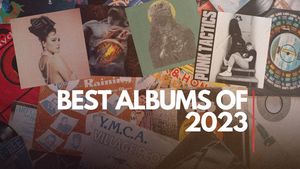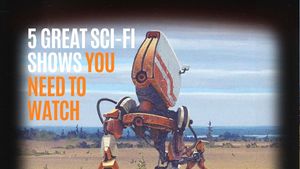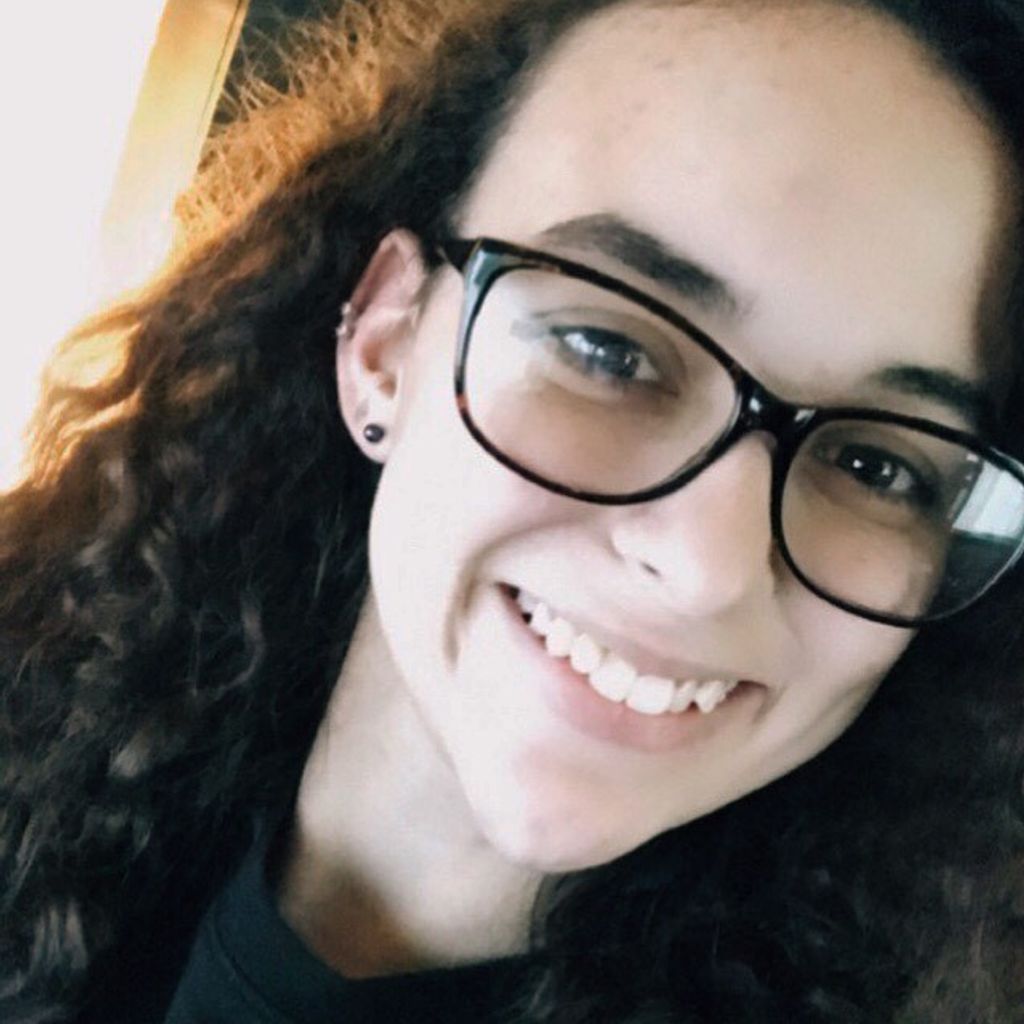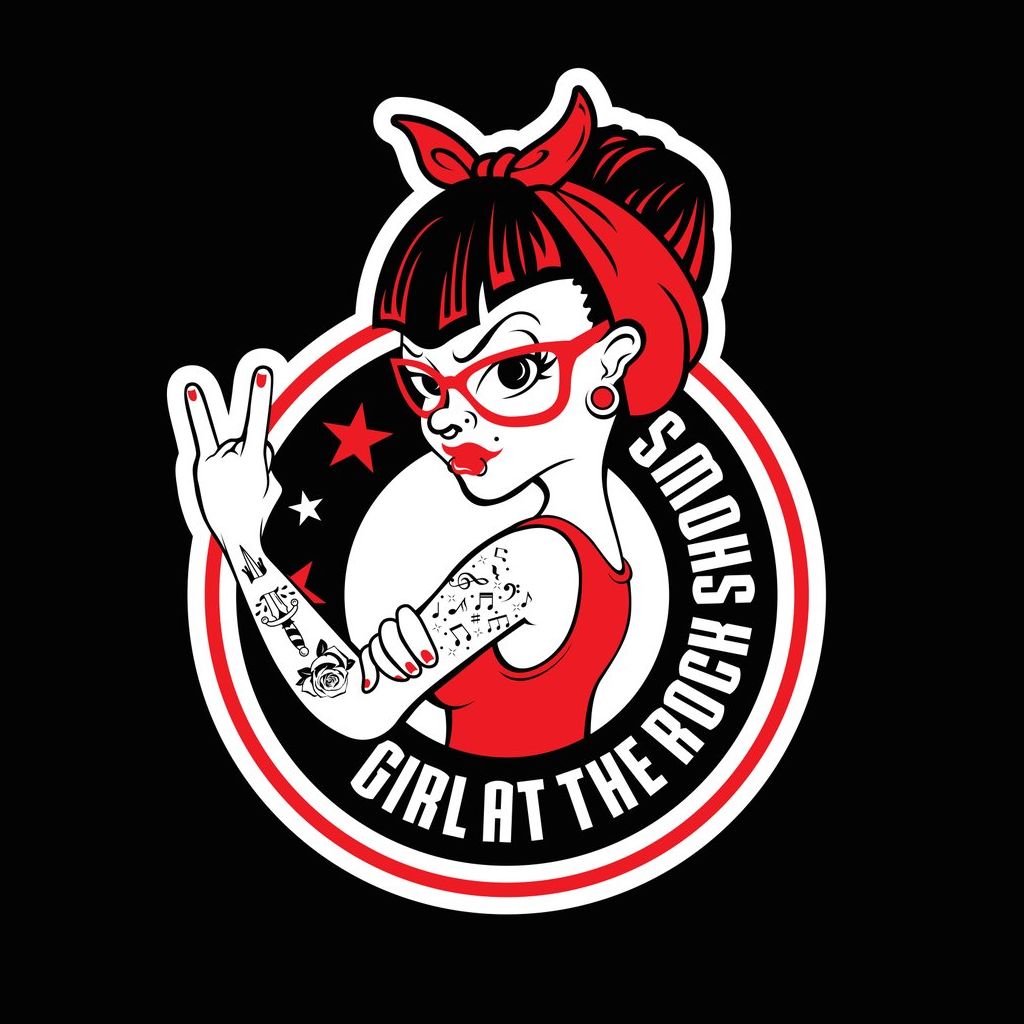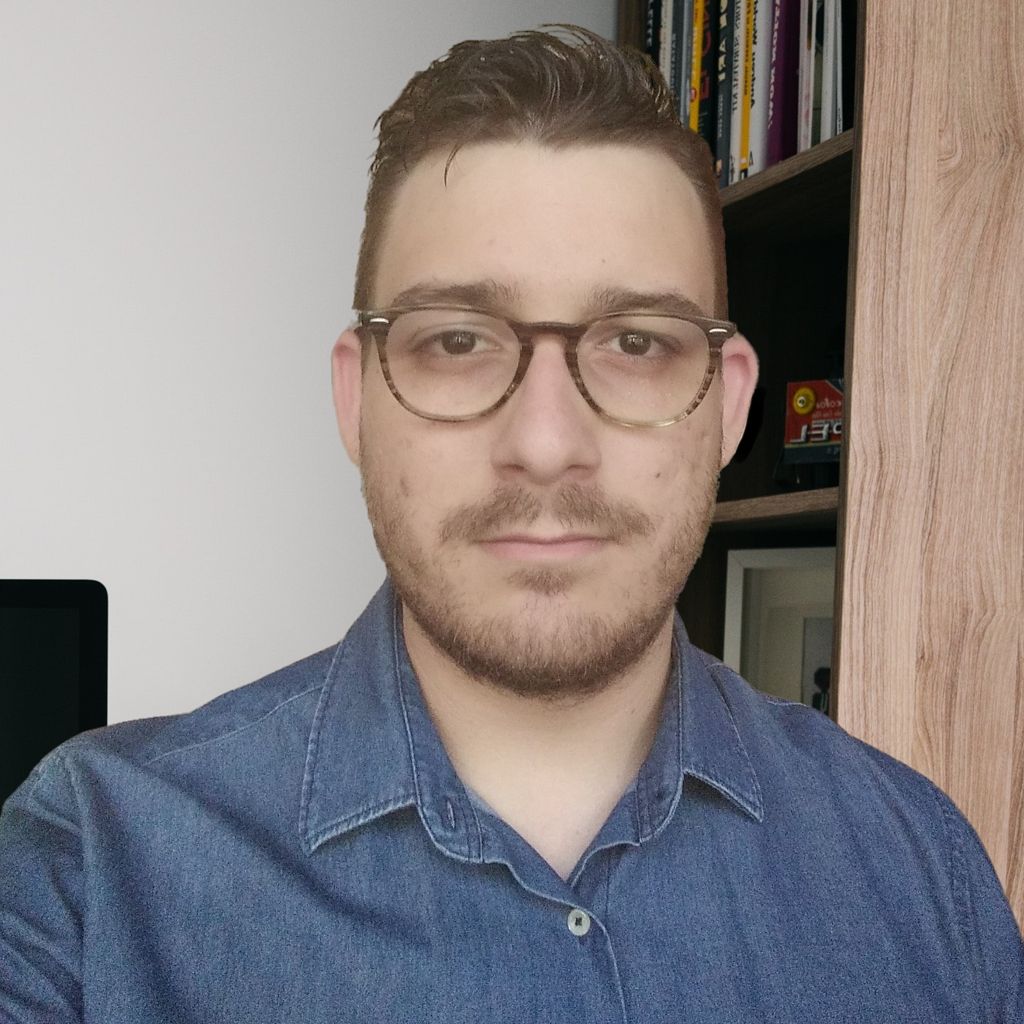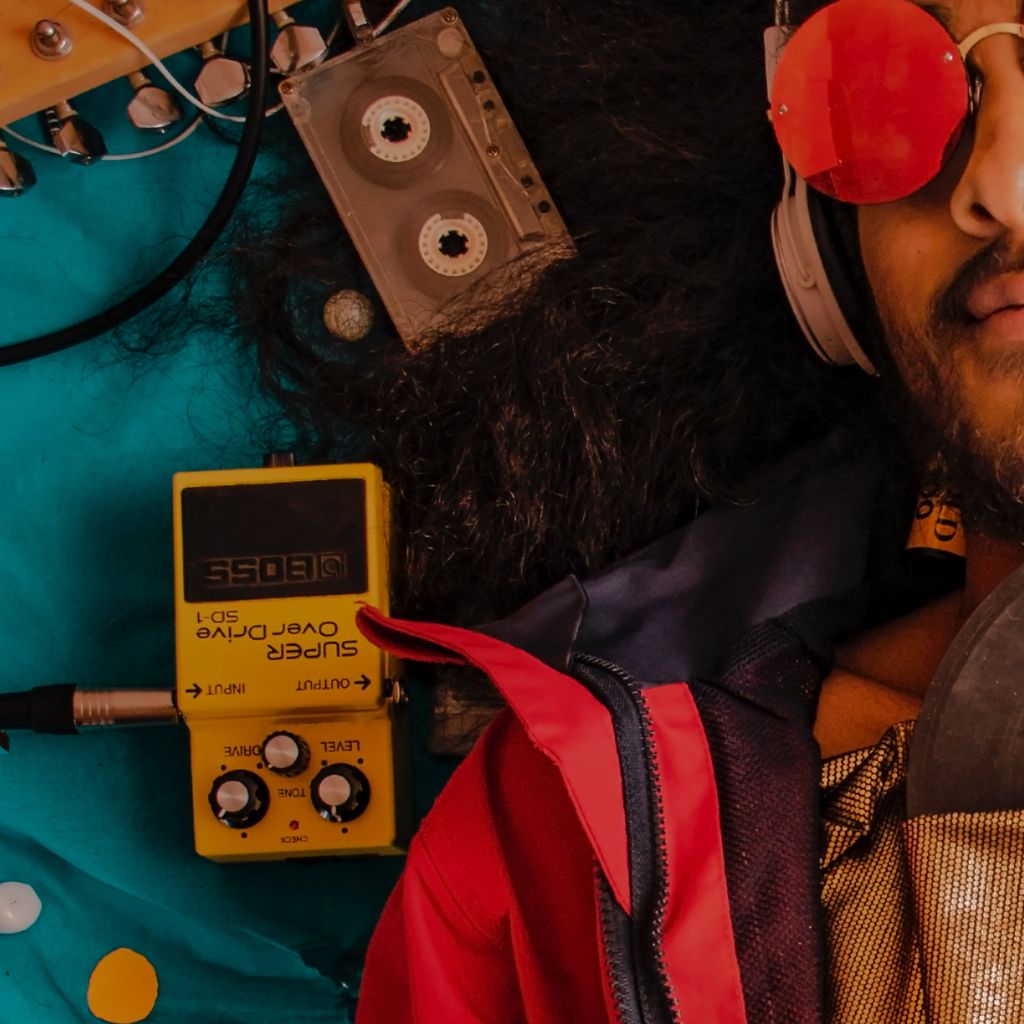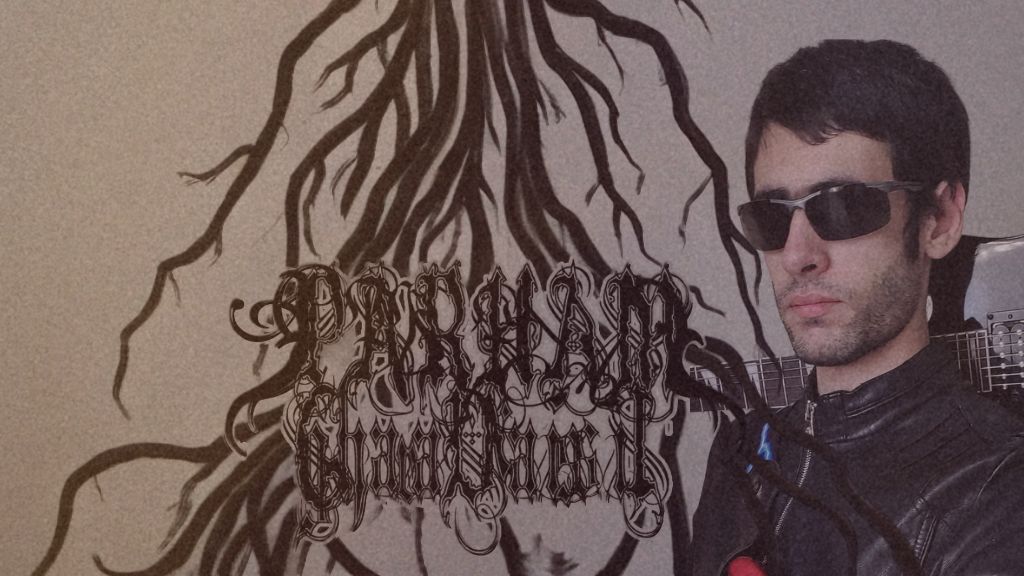
Parham Gharavaisi: An Artist Of Different Genres
Parham Gharavaisi is solo Musician and Producer with 8 Full-Length Albums spanning different genres; from Instrumental Post-Rock to Hard Rock and Melodic Metal. Electric Guitar, Electric Bass and Classical Guitar are the only physical instruments used for production, every other sound is achieved through the magic of computer software.
Produced by Parham Gharavaisi Music & Lyrics by Parham Gharavaisi Mixed & Mastered by Marvin @tidestudiolondon.

Where can we find you right now and what are you up to?
I am currently working on two projects simultaneously. The first is a Greatest Hits compilation album, consisting of re-recordings of my previously released music with superior production quality. I am not on social media, but I have Twitter and Minds accounts.
How did you first get into playing music, and what drew you to the metal genre?
As a longtime video game fan, my first experience with music was listening to 16-bit soundtracks on old consoles such as the Sega Genesis. Ever since, I have been fascinated by the possibilities achievable with sound alone, and some of my all-time favorite records are video game original soundtracks. To name a few: Hideyuki Fukasawa's Chaos Legion OST, Olivier Deriviere's Alone in the Dark OST, and, of course, Akira Yamaoka's legendary work on the Silent Hill series. I was drawn to metal in the 2000s, and to this day, I enjoy the old-school sound of that era the most.
Follow Parham Gharavaisi
Can you share some of your musical influences that have shaped your sound?
Other than the abstract idea of the "old-school 2000s sound," nothing particular or any specific band comes to mind. I just like the general atmosphere of that era. The music I make is what I want to hear myself, so essentially, I'm making music for myself. I can't pinpoint any specific influence or moment that pushed me towards making a certain type of music. My debut album was instrumental post-rock with only guitars, and since then, I have made music in various genres, such as Pop Rock, Hard Rock, Metalcore, Melodic Death Metal, Gothic Rock, and Gothic Metal, among others.
What inspired you to focus on playing fast riffs, and how do you approach creating them in your compositions?
I'd say they're a mix of metalcore and melodic death metal, and I have always loved the sound of intricate riffs and how even the smallest variations can significantly affect the overall feel of the riff. With that in mind, I always start the writing process slowly, maybe at half the actual tempo, to deliberately craft even the smallest elements like the amount of palm mutes, vibratos, bends, layers, and harmonies, among other things. Riffs are like the legs of the table that is the song, so I always take my time to make the riffs the best they can be. With that being said, I don't particularly favor fast riffs or shredding just for the sake of being impressive. In fact, I don't think much about the tempo at first; I just go with whatever speed feels right and take it from there.
How would you describe your creative process when developing heavy and intense musical pieces?
I often find it more convenient to compose on the classical guitar, and yes, I'm talking about composing heavy riffs. Having my classical guitar accessible at all times makes it easier to come up with and polish ideas. Regarding song structure, I use a couple of very different approaches. For instance, one of my favorites is a progressive approach where I start the song quite mellow and gradually get heavier towards the end, without any repeating sections such as choruses. I feel like this lends itself to better storytelling. Overall, I like to think of each song as its own entity and do what makes it sound the best, without adhering to any overarching methods or systematic approaches. I just tend to write what sounds best, that's all.
Can you tell us about your favorite guitar gear and equipment that contributes to your signature sound?
So, the first guitar I ever got was an Ibanez GRG170DX, and ever since then, I've fallen in love with the brand. I've managed to set it up so I can downtune all the way to Drop A (AEADEA) with some heavy gauge strings and have been playing it ever since. I've never been a gear nerd and don't think the sound comes from the gear for the most part. In fact, I've never even bothered with a real amp; the computer has been enough. Nowadays, you can do everything with plugins, and it's made physical gear somewhat redundant in the context of recording and production, at least. But of course, live performance is another matter entirely. My bass guitar is a Yamaha TRBX204, and the thing is a beauty. It's downtuned to Drop A0 – yes, that's A0 with a borderline inaudible fundamental frequency of 27.50 Hz that's heavy as hell. I'm not even entirely sure if it's even conceivable to do that to the poor bass, but I love the way it sounds regardless.
How do you see the role of technology, such as digital audio workstations and plugins, in shaping the modern metal sound?
"Nothing fancy really, just your usual archetypes, EQ, compressor, and the occasional saturation. I believe for the most part, the character of the sound is shaped by the EQ and compressor, and everything else is just the cherry on top of the cake. Of course, none of this would have been possible without the modern advancements in digital audio processing software. But that being said, just like with the gear, I don't think it's your plugins that make your unique sound; it's you as the artist. You can have the best gear and the most expensive plugins in the world, and it wouldn't matter if you don't know how to use them or what to do with them. However, a solid impulse response is such a crucial piece of the puzzle when it comes to using amp sims, so if there's one takeaway from this, it would be to make sure you start with a good impulse response regardless of what amp sim you're using.
What are your goals? Where do you see yourself in five years?
The default goal has always been to release one single on the first Friday of each month. I currently have two upcoming albums titled Ghosts of Nations and Infect the Clouds scheduled for release on October 14, 2024, and October 14, 2025, respectively. The former deals with mature themes such as societal collapse, self-harm, suicide, domestic abuse, and mass shootings, among others, while the latter is a concept album. It tells the journey of a misanthropic villain protagonist on a quest for vengeance.
We also have a support page where you can buy us a coffee (5$) and you can have a full page every month just for your projects on every printed issue (3-4 per month). Perks:
- We add your music to our Spotify playlists
- We add your bio and music under the "Artists" & "Spotlight" section on our website
- We add your photo at the end of every post on our social media
- Full page featuring your photos and bio with a QR code leading to your music
